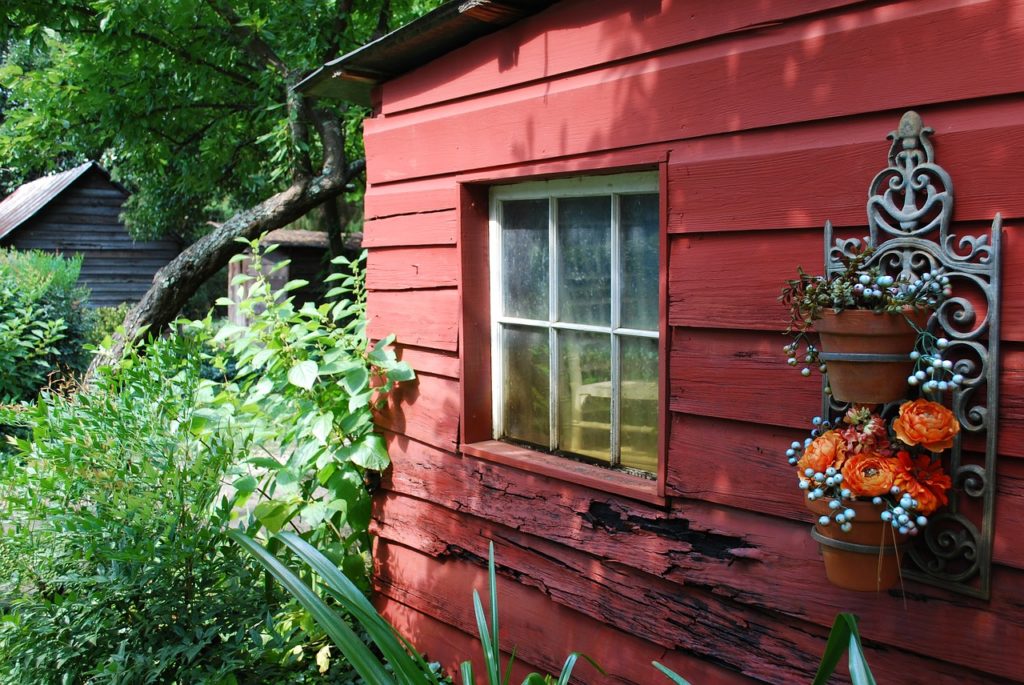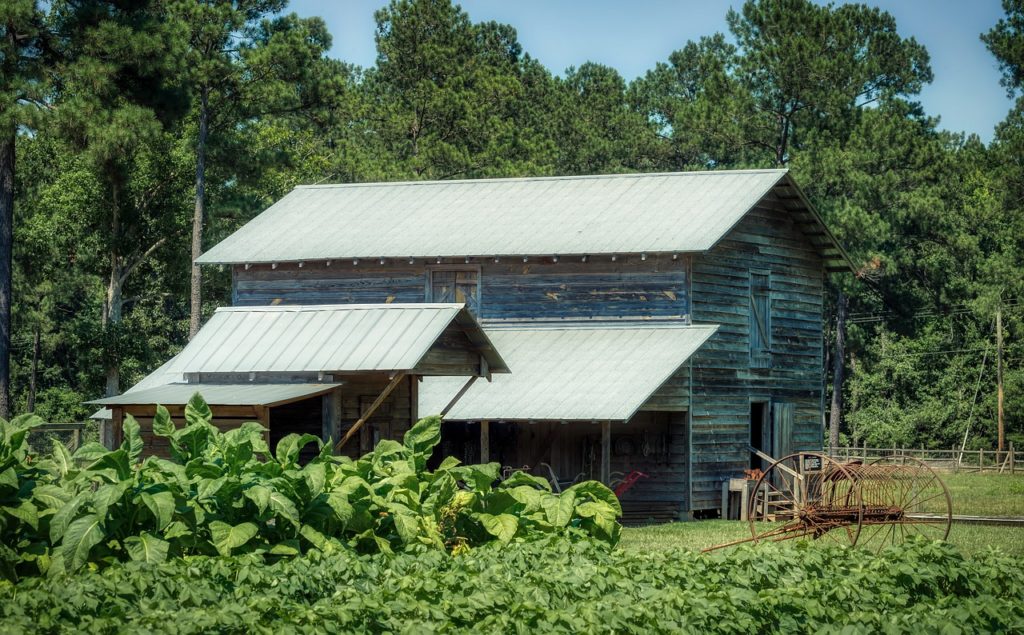How to start homesteading in South Carolina
Between beautiful beaches like Myrtle Beach and the quaint cobblestoned streets of its capital Charleston, South Carolina is something of a picturesque southern paradise. Though today it is better known as a tourist destination, South Carolina was established as an agrarian hub, and the industry defined the state’s early history.

Modern South Carolina is increasingly urban and suburban. However, its rural legacy continues to attract newcomers. If you think the Palmetto State might be for you, here’s what you need to know about how to start homesteading in South Carolina.
Buying farmland in South Carolina
According to 2019 data from the United States Department of Agriculture (USDA), the average cost of farm real estate in South Carolina was $3,400 per acre, compared to the national average of $3,160 that same year. The average cost per acre for cropland was $2,830 and $3,240 for pasture.
According to the USDA’s 2018 State Agriculture Overview, South Carolina has 4.8 million acres of farmland and 24,600 farms. The average farm size is 195 acres.
The location and business structure for a farm or homestead will determine how a business must be registered. Determine those factors first, and registration becomes very straightforward.
Working farms must register as a business with the state and local governments. If farmers conduct business as themselves using their legal name, they are not required to register, but they will miss out on personal liability protection, legal benefits, and tax benefits.
South Carolina Farm Link, or SC Farm Link, is a statewide farmland transition program administered by the state Department of Agriculture to maintain land in agricultural use by helping beginning and expanding farmers gain access to farmland in South Carolina. A coordinator with the program will facilitate conversations between farm seekers and farm owners looking to pass on their land.
Growing crops in South Carolina
The USDA hardiness zones in South Carolina range from 7a along the northwestern border to 9a in the southernmost coastal counties in and around Charleston.

Tobacco, soybeans, cotton, and corn for grain are other valuable crops grown in the state. Other field crops are wheat, peanuts, hay and oats. Peaches are an important fruit crop of South Carolina as well — South Carolina is the nation’s leading peach producer and shipper east of the Mississippi River — and pecans are also produced in the state. South Carolina’s other commercially-grown crops include tomatoes, cucumbers, watermelons, squash, beans and sweet potatoes.
Most fruits and vegetables will grow well in South Carolina, but check out this list of preferred vegetable varieties in South Carolina from Clemson University.
More than 180 soil series have been recognized in South Carolina. The northwest one-third of South Carolina is home to the Piedmont Plateau, with dark sandy loam Piedmont soil topping heavy red clay that is naturally low in fertility, Well-draining, central-region soils are prime land for gardening and farming. The closer a location is to the Atlantic, the more likely the soil will be sand-dominated, which drains well but is low in nutrients.
Soils with a low pH are found throughout South Carolina. Depending on the location and the plants grown, soil pH may need adjustments. Local cooperative extensions will help determine with soil tests (sometimes for a fee) to determine the amendments needed.
Raising animals in South Carolina
More than half of South Carolina’s agricultural income is produced by livestock and livestock products. Broilers chickens are the most valuable, comprising about 27 percent of the state’s total agricultural receipts. Turkeys, beef cattle and calves, chicken eggs and hogs are also valuable contributors to the state’s agricultural revenues.
Livestock or poultry entering South Carolina must be accompanied by a certificate of veterinary inspection. Livestock and poultry entering the State without a certificate must be held in quarantine at the nearest suitable location while necessary tests or inspections, or both, are conducted. Alternatively, livestock and poultry loaded aboard their transporting vehicle may be allowed to return to its point of origin, with notification to the appropriate state veterinarian. It is also illegal to feed garbage to swine in South Carolina.
According to South Carolina Fence Laws, any domestic or domesticated animal found wandering at large or abandoned in the public ways or on the lands of any person other than its owner is known as an “estray.”
Any person finding an estray may take possession of the estray. If no one has claimed the animal, the person who found it must deliver or report the finding and taking up of such estray to the nearest magistrate, who shall sell such estray at public sale after ten days’ notice posted in three public places in the county, one of which shall be the courthouse door.
The proceeds of the sale of an estray shall be applied first to costs of sale and next to costs of care and feeding of the estray, including a reasonable compensation as determined by the magistrate for the finder’s labor for care and feeding. Any balance remaining shall be paid into the county treasury as general county funds.
Any person violating the provisions of this article, or attempting to conceal or appropriate an estray to his own use, shall be guilty of a misdemeanor and upon conviction shall be fined not more than one hundred dollars or imprisoned not more than thirty days for each offense.
It is unlawful for livestock owners to willfully or negligently permit animals to run at large beyond the limits of his own land or the lands leased. Any owner, manager or person violating the provisions of this section shall be subject to a fine for each offense of not more than twenty-five dollars or to imprisonment for not more than twenty-five days.
Whenever any domestic animals shall be found upon the lands of any other person than the owner or manager of such animals, the owner of such trespassing stock shall be liable for all damages sustained and for the expenses of seizure and maintenance.
It is also unlawful for any person to drive or allow to run at large any horse, mule, hog, cattle, sheep or other livestock in any marsh, forest lands or range in this State. Any person so offending shall be subjected to a penalty of five dollars for each head.
A number of livestock auctions take place throughout the state of South Carolina, including the Chester Livestock Exchange, Laurens Livestock Exchange, the Orangeburg Stockyards and the Saluda County Stockyards. Additional livestock sales can be found on the South Carolina Department of Agriculture website.
Selling food in South Carolina
There are 139 farmers markets listed on the South Carolina Department of Agriculture website.
South Carolina Department of Agriculture (SCDA) Food Safety and Compliance does not regulate farmers markets, roadside markets, flea markets and other direct marketplaces, nor does it regulate fruits and vegetables or other products sold in their natural unprocessed state at direct markets in South Carolina.
However, the SCDA does have regulatory authority over certain processed or manufactured food items that are sold wholesale to other businesses. If a market vendor is registered, permitted or licensed by SCDA to sell wholesale to other businesses, the vendor may also sell their products directly to the end consumer. Products must bear complete and accurate labeling. Product liability insurance is recommended but not required by SCDHEC or SCDA.
Home-based food operations preparing non-potentially hazardous baked foods and candy in their home and distributing those items to the end consumer do not require a retail food establishment permit is required so long as all food production is in the home kitchen. Once you move out of your home kitchen to prepare products, a permit issued by South Carolina Department of Health and Environmental Control is required, and you may only sell to the end consumer at venues such as farmers markets and flea markets.
Products must be labeled with the name and address of the home-based food operation; the product name; a complete list of ingredients (it is suggested, but not required, that allergens be listed); the net weight (must be provided in both customary and metric measurements); and a conspicuous statement printed in all capital letters and in a color providing a clear contrast to the background that reads “NOT FOR RESALE-PROCESSED AND PREPARED BY A HOME-BASED FOOD PRODUCT OPERATION THAT IS NOT SUBJECT TO SOUTH CAROLINA’S FOOD SAFETY REGULATIONS.”
Moist quick breads like zucchini, pumpkin, and banana may be potentially hazardous and may require product analysis. Canned and jarred foods are not covered by the law and are not eligible for exemption. Other potentially hazardous foods include heat-treated plant foods, raw seed sprouts, garlic-in-oil mixtures and cut fruits and vegetables.
Eggs can be sold from the farm or place where they’re gathered without any further regulation. Eggs sold to other businesses or at locations other than where they’re produced, must be washed, graded, sized and properly labeled, and requires an SCDA Egg License.
Shell egg producers shall refrigerate eggs upon gathering the eggs. Eggs must be graded and packed within a reasonable period of time from gathering. After washing, processing, and packaging, eggs must be transported, stored, and displayed at ambient temperatures not to exceed 45 degrees Fahrenheit until sold.
All eggs sold in South Carolina must be labeled with the date when the eggs were packed and candled or the expiration date, which may not exceed 45 days from the date packed; the size and grade of the eggs; and either the name and address of the packer or the USDA assigned plant number or a state-approved plant identification code.
South Carolina organizations for new farmers
- South Carolina Farm Bureau
- South Carolina Advocates for Agriculture
- Carolina Farm Stewardship Association
- Coastal Conservation League’s GrowFood Carolina
- South Carolina Association of Farmers Markets
- South Carolina Agritourism Association
- Certified South Carolina
- Clemson Cooperative Extension (especially the SC New and Beginning Farmer Program)
- South Carolina State University Cooperative Extension
How difficult is it to start homesteading in South Carolina?
With its long growing season, moderately priced land and government resources to connect new farmers with opportunities, South Carolina is a fine place to start a farm or homestead.
